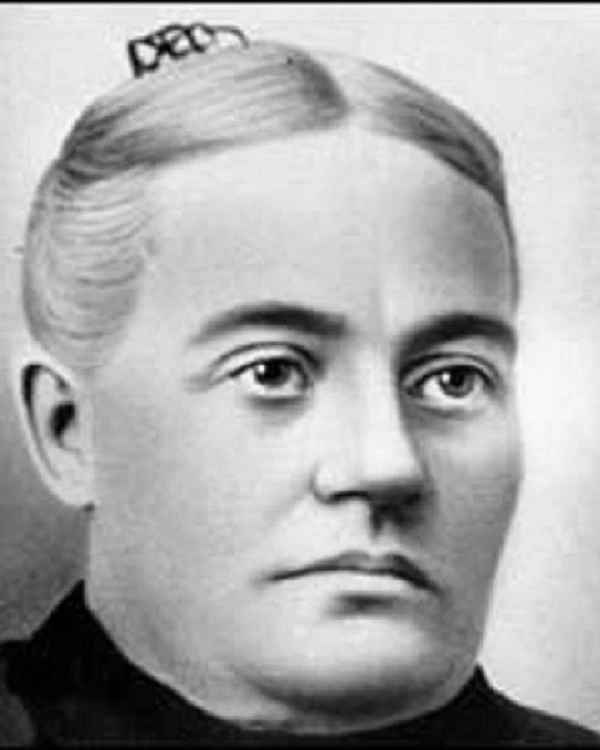Last updated: March 9, 2021
Person
Adeline Warfield Hornbek

Born in 1833 and raised in the farming country of Franklin County, Massachusetts, Adeline Warfield was 17 years old when the first National Woman's Rights Convention was held nearby in Worcester.
The convention speakers told the young women of the nation “to be individuals and be all that they are capable of”. Possibly inspired by this social movement that challenged the view of the traditional roles of women, she along with her brother and his wife, left Massachusetts and traveled westward in the early 1850’s dreaming of a new life in the frontier.
When the American Civil War started in April, 1861, Adeline was living her dream and was happily married to Simon Harker, her brother's business partner. In addition, she was raising their two young children and helping operate at least two trading posts in the Creek Nation, Indian Territory of Oklahoma. Unfortunately, the Civil War split the Indian Nation apart, and terrible violence ensued between the different tribes. Seeking safety, Adeline and Simon with their two children left the Indian Territory and resettled in the rapidly growing territory of Colorado.
Laboring alongside her husband, she helped start a new life for her family near the mining settlement of Denver. Rather than engaging in mining, she and Simon establish a cattle ranch near the stage road that led to Denver. They sold cattle and produce to the miners and new immigrants. In 1863, Adeline gave birth to her third child.
In the spring of 1864, a historic flash flood ravaged Denver and the area of Adeline’s ranch. Many lives were lost, livestock drowned, and ranches were devastated. Already suffering from tubuculosis and then exposed to the flood, Simon became seriously ill and died weeks later. Adeline was left alone – a widow with three small children to raise, a destroyed ranch, and an uncertain future.
Adeline was only 31 years old but was a seasoned pioneer lady when her husband died. She would have been able to harness and ride horses, and manage a cattle ranch. Demonstrating great courage, she decided to stay on her ranch and rebuild. Probably with assistance from other pioneers, she slowly recovered.
However, needing full time help, she hired a former gold miner named Elliot Hornbek to work on the ranch. In 1866, she married Elliot and her fourth child was born in 1870. Unfortunately, the marriage didn't last and he abandoned Adeline and the family a fews years later.
In 1876, as Colorado celebrated its statehood, she relocated for the last time to an area known as the Florissant Valley. At an elevation of 8500 feet, this alpine valley was covered with large meadows of wild buffalo grass and acres of aspens and pine trees; and was ideal for a free-grazing cattle ranch. With the help of her neighbors and her teenage children, she built a two story log house with 5 rooms and a parlor that would be the center of her new ranch. Historically, Adeline would be one of the first women to file a homesteading claim in the Florissant Valley and the state of Colorado.
Over the next few years, Adeline ‘s ranch grew and eventually doubled in size. She owned as many as 100 cattle with her own registered cattle brand and employed several ranch hands. As the community also grew,, she devoted more of herself to helping the homesteaders of Florissant valley prosper. Needing a new school and a teacher, she helped establish the Florissant school board, hire a new teacher, and build the first school in the area. She also opened her large home to social events that helped establish Florissant as a successful homesteading community.
In 1893, Mrs. Hornbek and other women voted legally for the first time in Colorado. Historians argue that women of the frontier, like Mrs. Hornbek, proved they had earned the right to vote. It was not a coincidence that states like Colorado, Utah, and Wyoming were the first to recognize the equality of men and women. Twenty seven years later, the 19th Amendment gave every woman in the United States the right to vote.
Mrs. Hornbek died in 1905 and was quietly laid to rest about four miles from her home. In 1969, her ranch became a part of the Florissant Fossil Beds National Monument and is visited by thousands of visitors every year.
